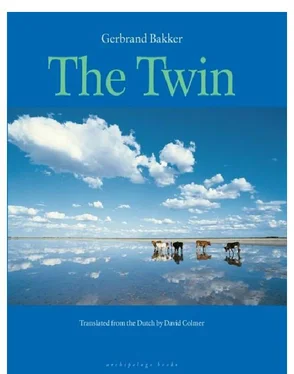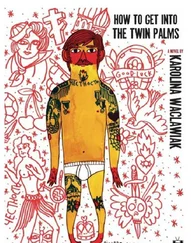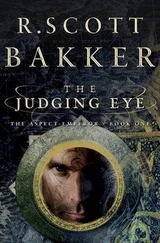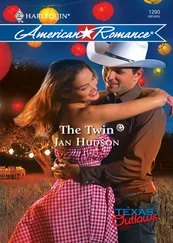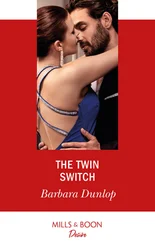“The clock?” he says, when I come into the bedroom.
“Yep, the clock.” I put it right behind the door, pull up the weights and give the pendulum a nudge. Immediately, the bedroom is filled with time, slowly ticking away. When the door is shut, Father can count the hours.
After a glance at the clock face, he says, “I’m hungry.”
“I get hungry too sometimes,” I say. The clock ticks on calmly.
“The curtains are closed,” he adds.
I walk over to the window and open the curtains. It’s stopped raining and the wind has died down a little. The water in the ditch is up and flowing over the causeway. “I have to do the windmill,” I say to myself and the window. Maybe I’m saying it to Father too.
“What?”
“Nothing.” I set a window ajar and think of the bare spot in the living room.
In the kitchen I make a cheese sandwich and wolf it down. I can hardly wait. With the water still dripping through the coffee maker, I go into the living room. I am alone, I’ll have to do it alone. I lift the sofa on to one of the rugs I used for the clock and drag it through the hall to the scullery. I carry the two armchairs out of the front door and set them at the side of the road. The rest goes in the scullery with the sofa. I have to empty the sideboard completely before I can slide it. Then, finally, I’m able to wriggle my fingers in under the carpet. This one was more expensive and doesn’t crumble in my hands. As I roll it up, I consider keeping it — can’t I put it to some use somewhere? Nothing springs to mind. The roll of carpet is too heavy to pick up: I haul it up the gravel path and over the bridge to the road. When I come back I notice the telephone in the hall and phone the council to tell them I’ve left out some bulky rubbish. The coffee is steaming on the warming plate.
On my way to the windmill I see something I’ve seen several times in the last few days — something disturbing. A flock of birds flying neither north nor south but all directions at once, swerving constantly. The only noise is the sound of flapping wings. The flock is made up of oyster-catchers, crows and gulls. That’s what’s strange: never before have I seen these three species flying together. There’s something ominous about it. Or have I seen it before without it leaving me with such an uneasy feeling? After watching longer, I see that it’s actually four species: between the large herring gulls there are also black-headed gulls, which are a good bit smaller. They skim past each other every which way, there are no separate units, it’s as if they’re confused.
The windmill is a small, iron Bosman windmill. “Bosman Piershil” is written on one side of the iron tail. “Pat. No. 40832” on the other. I used to think Pat was the name of the maker, short for Patrick, but now I know it stands for patent. If the tail is at right angles to the vanes the windmill seeks the wind automatically and keeps turning and pumping water until you fold the tail forward along the guide rail. But now I fold the tail back, using a bar attached for that purpose. It’s a beautiful, slender windmill, with something American about it. That’s why Henk and I used to come here so often in the summer, because it seemed foreign and because of the concrete base built in the ditch and because we loved the smell of grease. Things were different here. Every year a Bosman man would come to check the windmill and even now, years since the last Bosman man came, everything runs smoothly. I stop for a moment to watch the water bulge in the canal.
I take the long way back and count the sheep. They’re still all there. Twenty-three, plus the ram. The ewes’ rumps are red, I’ll take the ram away soon. They walk off at first, then follow me when I get closer to the causeway. I stop at the gate. About ten yards from me they stop too, lined up on either side of the square-headed ram, staring at me. It makes me feel uncomfortable.
I see the rain-sodden carpet in the yard and decide to take that up to the road as well.
Just before milking I give the gravel in the front garden a quick rake. It’s already getting dark. The two boys from next door, Teun and Ronald, are sitting under the carpet — the expensive one — which they have half unrolled and thrown over the two chairs. Not so long ago they came to the front door around seven p.m. to hold up red hollowed-out sugar beets and croak out a song. The soft light from inside the beets made their excited faces look even redder. I rewarded them with two Mars bars. Now they’ve got torches. “Hey, Helmer!” they shout through the hole they’ve cut in the carpet — with a knife? — “This is our house!”
“Great house,” I shout back, leaning on my rake.
“We’ve even got light!”
“I noticed.”
“And there’s a flood too!”
“The water’s already going down again,” I reassure them.
“We’re going to sleep here.”
“I don’t think so,” I say.
“I think so,” says Ronald, the youngest.
“No, you’re not.”
“We’re going home soon,” I hear Teun whisper to his little brother. “We haven’t got anything to eat.”
I look up at the window of Father’s bedroom. It’s dark inside.
“I want to celebrate Saint Nicholas,” he says.
“Saint Nicholas?” There haven’t been any Saint Nicholas celebrations in this house since Mother died. “What for?”
“It’s nice.”
“And how do you imagine it?”
“You know,” he says, “the usual.”
“The usual? If you want to celebrate Saint Nicholas, you have to buy presents.”
“Yep.”
“Yep? How are you going to buy presents?”
“You’ll have to buy them.”
“For myself as well?”
“Yep.”
“Then I’ll know what I’m getting.” I don’t want to have long conversations like this with him. I want to look in briefly and get away fast. The ticking of the grandfather clock fills the room. A window-shaped block of light shines on the glass of the case and reflects on the sheep painting, making it a lot less gloomy. It’s a strange painting. Sometimes it looks like winter, sometimes summer or autumn.
When I’m about to close the door, he shouts, “I’m thirsty.”
“I get thirsty too sometimes.” I close the door firmly behind me and walk downstairs.
Only the sofa has made it back to the living room. On the bottom shelf of the built-in linen cupboard in my bedroom I found a big piece of material. Mother might have been planning to make a dress from it, although it seems a bit large for that. It’s perfect for covering the sofa. The floor is primer gray. When the bedroom door is open, the color is continuous over the freshly painted sill. I’ve done the skirting boards, window frames and doors with primer as well. The sideboard is somewhere else, with the low bookcase on top of it. I’ve thrown all the flowering plants on the muck heap. That didn’t leave much. When I go to buy paint, I’ll have to look for venetian blinds or roller blinds as well; the heavy dark-green curtains in the bedroom and living room leave me gasping for breath, and I have a vague suspicion it’s not just because of the years since they were last beaten. I took the remaining contents of the linen cupboard upstairs and brought my own clothes downstairs.
There are cats here. Shy cats that shoot off. Sometimes it’s two or three, a few months later it will be nine or ten. Some are lame or missing their tails, others (most, actually) are incredibly mangy. It’s impossible to keep tabs on them: it’s no surprise if there’re ten, but two is just as likely. Father used to solve the cat problem by shoving a litter in a gunny sack, adding a stone, and tossing the sack in the ditch. Long ago he would also stuff an old rag in the sack after first drenching it with some liquid from the poison cabinet. I don’t know what it was, that liquid. Chloroform? But how did he get his hands on a bottle of chloroform? Were you able to go out and buy things like that thirty years ago? The silver-gray cabinet with the skull and crossbones on the door is in the barn and hasn’t contained poison for a long time: poison is out of fashion. I keep paint in it.
Читать дальше
